Featured
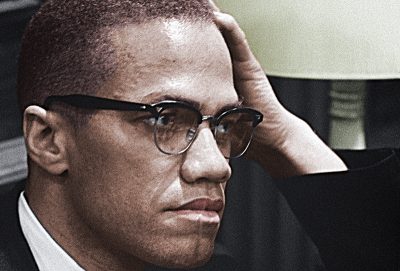 ‘Well, What Do You Mean, We Can’t Join the Klan?’ Inside the bizarre, secret meeting between Malcolm X and the Ku Klux Klan. By Les Payne and Tamara Payne / Politico
‘Well, What Do You Mean, We Can’t Join the Klan?’ Inside the bizarre, secret meeting between Malcolm X and the Ku Klux Klan. By Les Payne and Tamara Payne / Politico
On the afternoon of January 28, 1961, at the home of Minister Jeremiah X, the Atlanta minister of the Nation of Islam (NOI), Malcolm X sprang to the living room window and peered through the venetian blinds. Some three dozen white men in civilian clothes sat bolt upright in a 10-car motorcade parking out front of Jeremiah’s house. Each car held three or four men. Neighbors on adjacent porches and other Black people strolling along the paved street scampered out of sight, some glancing back over their shoulders at the long column of four-door sedans. Read more
Political / Social
 How Donald Trump Talks About Black People. By Jamil Smith / Rolling Stone
How Donald Trump Talks About Black People. By Jamil Smith / Rolling Stone
The first question in Thursday night’s discussion about American racism is about “The Talk.” As moderator Kristen Welker tells both the 63 million viewers nationwide and the two white men running for president of the United States, this is the training black parents put their children through for survival. I use this space to describe it not because Welker did a poor job. (Quite the opposite, and I say that for the entire evening.) No, it’s because white parents may be wholly unfamiliar with “The Talk.” This is why, when Welker asks Joe Biden and Donald Trump to speak to black families who have to deliver this kind of instruction to their children, the answer does not demand their eloquence or expertise. Read more
Related: Trump’s Crackdown On Diversity Training Is Fascist. And Terrifying. By Emilt Peck / HuffPost
 End Minority Rule. Either we become a truly multiracial democracy or we cease to be a democracy at all. By Steven Levitsky and
End Minority Rule. Either we become a truly multiracial democracy or we cease to be a democracy at all. By Steven Levitsky and
The Trump presidency has brought American democracy to the breaking point. The president has encouraged violent extremists; deployed law enforcement and other public institutions as weapons against rivals; and undermined the integrity of elections through false claims of fraud, attacks on mail-in voting and an apparent unwillingness to accept defeat. Yet if American democracy is nearing a breaking point, the crisis generated by the Trump presidency could also be a prelude to a democratic breakthrough. Opposition to Trumpism has engendered a growing multiracial majority that could lay a foundation for a more democratic future. Public opinion has shifted in important ways, especially among white Americans. Read more
Related: Angela Davis Still Believes America Can Change. By Nelson George / NYT
 When We Talk About Fox News, We Need to Talk About the Murdoch Family Too. By Peter Mass / The Intercept
When We Talk About Fox News, We Need to Talk About the Murdoch Family Too. By Peter Mass / The Intercept
If the family’s last name became as toxic as the Fox name is, would they bring themselves to make changes, such as enforcing a zero-tolerance policy for racist and hateful content at their news outlets? The answer is probably no; Rupert Murdoch, an obdurate conservative, is famously unmoved by criticism and seems to enjoy being despised in Australia and Britain, where the media outlets that he doesn’t control are unsparing toward him. Read more
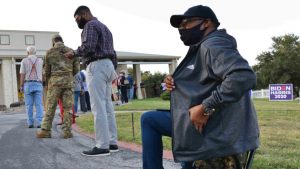 Voter Suppression Efforts Could Be Backfiring on Republicans. By Ari Berman / Mother Jones
Voter Suppression Efforts Could Be Backfiring on Republicans. By Ari Berman / Mother Jones
When early voting began in Texas on October 13, Abbott’s plan to limit Democratic participation appeared to backfire, as voters in Harris County, where voters of color make up a majority and where Hillary Clinton won by 12 points in 2016, surged to the polls. The numbers in Harris County have been astonishing. A record 128,000 people voted on the first day of early voting, up from 68,000 in 2016 and a higher turnout than the entire state of Georgia on the same day. Read more
Related: How the Biden Campaign Hopes to Win Black Men. By Adam Harris / The Atlantic
Related: LeBron James on Black Voter Participation, Misinformation and Trump. By Astead W. Herndon
 Senate: Mike Espy gains new attention in race against Cindy Hyde-Smith. Phillip M. Bailey and Luke Ramseth / USA Today
Senate: Mike Espy gains new attention in race against Cindy Hyde-Smith. Phillip M. Bailey and Luke Ramseth / USA Today
Mike Espy vented frustration a few weeks ago that national Democrats appeared to be writing off his chances of toppling Republican U.S. Sen. Cindy Hyde-Smith in deeply red Mississippi. “They don’t think a Black man in Mississippi can win,” the former agriculture secretary wrote on Twitter. They’re not ignoring Espy now. Read more
Related: Long after murders, Black voting is still troubled in Miss. By Tim Sullivan / ABC News
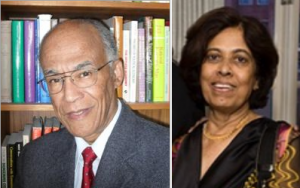 The Woman Who Led Kamala Harris to This Moment. By Rika Sharma Rani / The Atlantic
The Woman Who Led Kamala Harris to This Moment. By Rika Sharma Rani / The Atlantic
Gopalan spent much of her life fitting in where she wasn’t supposed to. When she left India in 1958 to pursue a graduate degree at UC Berkeley, she was one of the few Indian women enrolled at the university. In fact, the 19-year-old was one of the few Indian women in the entire country. Five years later, she bucked the Indian tradition of an arranged marriage and fell for a budding economist named Donald Harris. They named their first daughter after the Sanskrit word for “lotus”: Kamala. Read more
 Alabama Voters To Decide On Scrubbing Racist Language From State Constitution. By Jay Reeves / AP / HuffPost
Alabama Voters To Decide On Scrubbing Racist Language From State Constitution. By Jay Reeves / AP / HuffPost
Alabama voters once again have the chance to remove the racist language of Jim Crow from the state’s constitution, which was approved in 1901 to enshrine white supremacy as state law. A measure on the Nov. 3 ballot would allow the state to recompile its 119-year-old constitution in a process supporters say would remove a lingering stain from the state’s era of racial segregation and the legalized oppression of Black people. Read more
 Being Black lowers the value of my home: The legacy of redlining. By Michelle Singletary / Wash Post
Being Black lowers the value of my home: The legacy of redlining. By Michelle Singletary / Wash Post
My “hood” is idyllic, except for one thing. The value of my home in Prince George’s County, Md., would be significantly higher if my husband and I weren’t Black — and if all our neighbors weren’t Black. Pick up and move our Black neighborhood of doctors, teachers, police officers and small-business owners just 20 miles west to a White subdivision with a similar economic makeup, and our homes would easily be worth 40 percent more. This is true for other Black communities across the country, where homes can be undervalued by as much as 65 percent. Read more
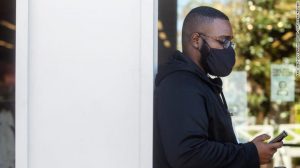 In Mississippi, more White people now have gotten Covid-19 than African Americans. Attitudes about masks might help explain why, official says. By Jason Hanna / CNN
In Mississippi, more White people now have gotten Covid-19 than African Americans. Attitudes about masks might help explain why, official says. By Jason Hanna / CNN
For the longest time in this pandemic, coronavirus had infected and killed more African Americans in Mississippi than White people, which experts explained in part by pointing to racial health disparities in one of the most impoverished states. Early on, Black Mississippians accounted for roughly 60% of the state’s cases and deaths, the state health department says. But the tide has turned in the Magnolia State. Just as the country is seeing a resurgence in Covid-19 cases, Mississippi is, too — but now with cases among White people leading the way. Read more
Related: Doubts About COVID-19 Vaccine Among People Of Color. By Laurel Wamsley / NPR
Related: Honoring Black lives lost to COVID-19. By The Undefeated
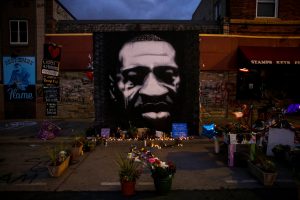 Racism’s hidden toll. In Minneapolis, the physical and mental strain of a lifetime confronting racism surfaced in George Floyd’s final years. By Robert Samuels / Wash Post
Racism’s hidden toll. In Minneapolis, the physical and mental strain of a lifetime confronting racism surfaced in George Floyd’s final years. By Robert Samuels / Wash Post
George Floyd came to this city with a broken body and wilted dreams, his many attempts at a better life out of his grasp. He was left with no college degree, no sports contract, no rap career, not even a steady job. At 43, what he had was an arrest record and a drug problem, his hopes hinging on one last shot at healing. Finding a way to live has never been a sure thing for Black men in America, who are taught from an early age that any misstep could lead to a prison cell or a coffin. Read more
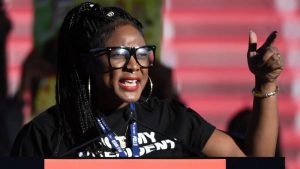 Alicia Garza Was Potential Target of Armed White Supremacist. By Ishena Robinson / The Root
Alicia Garza Was Potential Target of Armed White Supremacist. By Ishena Robinson / The Root
As we get closer to Election Day, more reports of planned, executed, and nearly-executed violence at the hands of white supremacists keep barrelling in. Deeply insecure white people with weapons have been targeting everyone from Black church-goers and the governor of Michigan, to even their police enablers in Minneapolis. Now news has come that these thugs may have set their sights on Alicia Garza, one of the three Black women who founded the Black Lives Matter hashtag and corresponding movement. Read more
 ‘Protect Breonna, protect myself’: Breonna Taylor’s boyfriend recounts night she was killed. By Emily Shapiro / ABC News
‘Protect Breonna, protect myself’: Breonna Taylor’s boyfriend recounts night she was killed. By Emily Shapiro / ABC News
When Breonna Taylor’s door flew open in the middle of the night, her boyfriend, Kenneth Walker, said what was going through his head was, “Protect Breonna, protect myself.” In an interview with ABC News and Louisville’s Courier Journal Wednesday, Walker recounted the night he witnessed 26-year-old Taylor get shot dead by police in her Louisville home. Read more
 Gap widens between unemployment aid for Blacks, whites. By Jessica Menton / USA Today
Gap widens between unemployment aid for Blacks, whites. By Jessica Menton / USA Today
As millions of people have lost jobs in the coronavirus-induced recession, the extra $600 in aid from the federal government began chipping away at a long-standing gap between the unemployment benefits received by Black Americans and white Americans. But with Congress at a months-long impasse over a new relief package that would renew the $600, which expired in late July, that gap is widening again just as household financial distress, particularly for Black workers, is increasing. Read more
 Jay- Z launches Monogram, his own cannabis line. By Chevaz Clarke / CBS
Jay- Z launches Monogram, his own cannabis line. By Chevaz Clarke / CBS
Jay-Z is growing his empire. The 50-year-old rapper and music mogul announced Friday that he is launching his first line of cannabis in a joint venture with Caliva, a California-based weed company. The rapper, whose real name is Shawn Carter, teamed up with Caliva last year when he became the brand’s chief brand strategist. Since then, he’s been working on developing his own line of marijuana, named Monogram. Read more
History / Culture
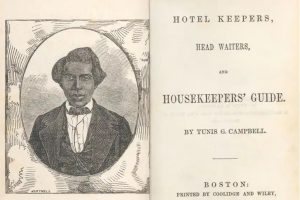 He fought for Black voting rights after the Civil War. He was almost killed for it. By Jess McHugh / Wash Post
He fought for Black voting rights after the Civil War. He was almost killed for it. By Jess McHugh / Wash Post
 How Saidiya Hartman Retells the History of Black Life. By Alexia Okeowo / The New Yorker
How Saidiya Hartman Retells the History of Black Life. By Alexia Okeowo / The New Yorker
On a clear night earlier this year, the writer and scholar Saidiya Hartman was fidgeting in a cab on the way to moma PS1, the contemporary-art center in Queens. The museum was holding an event to celebrate Hartman’s latest book, “Wayward Lives, Beautiful Experiments,” an account, set in New York and Philadelphia at the turn of the twentieth century, that blends history and fiction to chronicle the sexual and gender rebellions of young Black women. Read more
 New film spotlights shifting politics of Asian American voters, the fastest growing voter bloc. By Claire Wang / NBC News
New film spotlights shifting politics of Asian American voters, the fastest growing voter bloc. By Claire Wang / NBC News
Leading up to the 2018 midterms, a podcast host rallied conservative Mandarin speakers to unseat a Democratic senator in Ohio. A veteran journalist who just returned to North Carolina after two decades in China became alarmed by the rise in conservative Asian voters. A professor of race theory tried to make sense of racial violence in the South. And a gun-toting tea partier contemplated another bid for a House seat. These are four of the main characters in director Yi Chen’s debut feature documentary, “First Vote,” which follows a quartet of middle-age Chinese American voters in two swing states. Read more
 Recording Academy announces Black Music Collective leadership. By Jennifer McClellan / USA Today
Recording Academy announces Black Music Collective leadership. By Jennifer McClellan / USA Today
The Recording Academy has taken the next step in building the Black Music Collective, a group composed of Black leaders in the music business. When the collective launched in September, the academy announced Jimmy Jam, Quincy Jones, John Legend, Jeffrey Harleston, Debra Lee and Sylvia Rhone as honorary chairs. Today, members of the leadership committee were announced. They’ll helm the group that’s intended as a “space for members to speak openly about new and emerging opportunities in Black music across all genres and identify ways to drive more representation,” according to the academy. Read more
Sports
 Noose comment by Penn State basketball coach points to larger NCAA problem. By Jesse Washington / The Undefeated
Noose comment by Penn State basketball coach points to larger NCAA problem. By Jesse Washington / The Undefeated
The day after the Wisconsin game, Pat Chambers told Rasisr Bolton he knew the freshman was under a lot of pressure and wanted to help him. Bolton recalls Chambers, who was on the hot seat due to the suspension and a 7-8 record at that point in the season, saying, “I want to be a stress reliever for you. You can talk to me about anything. I need to get some of this pressure off you. “I want to loosen the noose that’s around your neck.” The Bolton family believed his comment was ignorant at best and a form of institutional racism at worst. Read more
 Race in America: Athletes & Activism. By Jonathan Capehart / Wash Post
Race in America: Athletes & Activism. By Jonathan Capehart / Wash Post
On Thursday, Oct. 22, Jonathan Capehart sat down with Renee Montgomery, point guard for the Atlanta Dream and 11-year WNBA veteran. Earlier this year, Montgomery became the first in her league to declare she had opted out of the WNBA’s season. Instead, she has spent the year working to fight racism, social injustice and voter suppression. Montgomery will discuss her work in Atlanta, and how she’s connecting with players across the country to help create systemic change. Watch here
 Simone Manuel on Olympic gold, being first and finding joy amid a pandemic and social reckoning. By Ericka N. Goodman-Hughley / ESPN
Simone Manuel on Olympic gold, being first and finding joy amid a pandemic and social reckoning. By Ericka N. Goodman-Hughley / ESPN
Being first often carries a sense of responsibility. You are the standard, the game-changer. You’re expected to create a path for those who follow. Olympic swimmer Simone Manuel manages to do so on her terms. Manuel made history at the 2016 Summer Olympics in Rio de Janeiro when she became the first African American woman to win an individual gold in Olympic swimming. The 24-year-old Stanford alum, who graduated in 2018 with a communications degree, won four medals in Rio: gold in the 100-meter freestyle and the 4×100-meter medley and silver in the 50-meter freestyle and the 4×100-meter freestyle relay. Read more
Visit our home page for more articles, book/podcast and video favorites. And at the top of this page register your email to receive notification of new editions of Race Inquiry Digest. Click here for earlier Digests.
Use the buttons below to share the Digest in an email, or post to your Facebook, Linkedin or Twitter accounts.